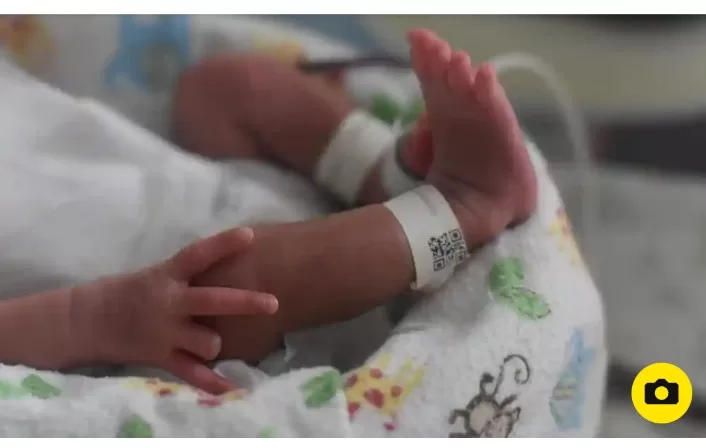Central China’s Hubei province is grappling with a disturbing revelation as six individuals, including Xiangyang Jianqiao hospital’s director, Ye Youzhi, have been arrested amid allegations of their involvement in a baby-trafficking ring. The accusations surfaced on 6 November when a Weibo user, Shangguan Zhengyi, self-identified as an “anti-trafficking volunteer,” exposed claims of collusion between the hospital director and “online intermediaries” in the illicit sale of birth certificates, reportedly fetching £10,750 each.
Shangguan, who purportedly worked undercover at the hospital for a year, asserted that after the sale of a birth certificate, the hospital engaged in the routine registration process for newborns, including the issuance of vaccination booklets and assistance with household registration requirements.
The whistleblower further accused Ye of brokering the sale of babies and facilitating illegal surrogacy arrangements, revealing that a baby girl was allegedly sold for 118,000 yuan in September and later registered in Sichuan province. The extent of the trafficking operation within the hospital remains unclear.
Ye, a 55-year-old gynecologist and obstetrician, had her medical license revoked following her arrest, as disclosed by a notice from the Xiangyang municipal government on Sunday. In addition to the six formal arrests, four suspects have been detained without charges.
Following the exposé, Chinese media reported that Ye has a history of involvement in medical scandals, notably a 2010 conviction for performing gender-selective abortions, resulting in a five-month prison sentence.
Efforts to contact Xiangyang Jianqiao hospital proved futile, with its WeChat account deactivated, and its website offline. The local health authority confirmed on 7 November that the obstetrics department of the hospital had been suspended.
Trafficking, a longstanding concern in China, particularly during the one-child policy era, has prompted authorities to intensify crackdowns on trafficking rings. The recent case adds to a series of incidents, such as the widely publicized case of the chained woman in 2022, illustrating the ongoing challenges authorities face in curbing human trafficking.
In September, a woman in Guizhou province was sentenced to death for abducting and trafficking 11 children in the 1990s, underscoring the severity of penalties imposed in such cases.
As the authorities contend with these cases, public outrage online continues to amplify, revealing the persistent struggle to address the multifaceted issue of human trafficking in China.







